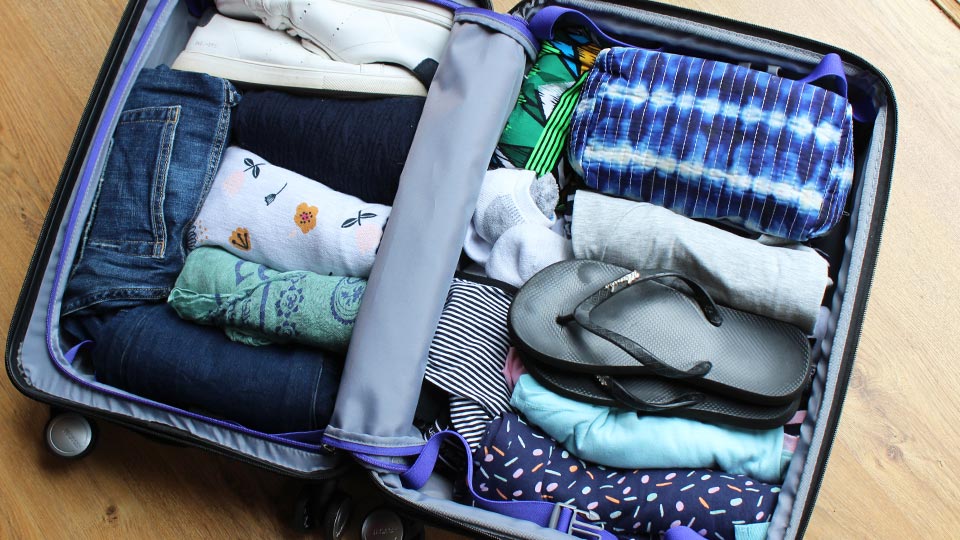Traveling light is an art that requires practice and discipline. The idea is to pack only what is essential and to leave behind everything else. By doing so, you can save time and money, avoid the hassle of carrying heavy luggage, and enjoy greater freedom and flexibility on your international adventures. Be sure to visit Fun over 50 Holidays to find out more about holiday tours for over 50s.
Luggage Storage Companies
Luggage storage companies are a brand new option to packing light and not having to worry about your luggage becoming a burden on your trip or next adventure. These companies have become increasingly popular in recent years, providing travelers with a convenient and secure way to store their bags while they explore a new city. They offer a range of options, from short-term storage to long-term storage, and allow you to drop off and pick up your bags at convenient locations throughout the city, especially luggage storage companies in Seattle. There are a plethora of luggage storage companies that offer secure storage for your bags.
Benefits
One of the main benefits of using a luggage storage company is the flexibility it provides. Rather than being tied to a specific location or schedule, you can store your bags for as little or as long as you need, giving you the freedom to explore the city without the hassle of carrying your luggage with you. Another advantage of using a luggage storage company is the security it provides. Most companies use secure facilities or partner with local businesses to provide storage lockers that are monitored and protected. This can give you peace of mind knowing that your belongings are safe and secure while you are out exploring the city.
Here are some other tips and tricks for mastering the art of traveling light:
- Choose the Right Luggage: The first step in traveling light is to choose the right luggage. Look for a bag that is lightweight, durable, and spacious enough to hold all your essentials. Ideally, you want a bag that is easy to carry, such as a backpack or a wheeled suitcase.
- Make a Packing List: Before you start packing, make a list of everything you need to bring. Be realistic and considerate of the weather, culture, and activities you will be participating in. Make sure to include only the essentials and avoid packing unnecessary items.
- Pack Multi-Purpose Clothing: When it comes to clothing, pack items that can be worn multiple times and for different occasions. For example, a pair of comfortable walking shoes can be worn for sightseeing, hiking, or even a night out. Similarly, a versatile dress or shirt can be dressed up or down depending on the occasion.
- Use Packing Cubes: Packing cubes are a great way to organize your belongings and make the most of your luggage space. They come in different sizes and colors and allow you to separate your clothing and accessories into different compartments.
- Roll, Don’t Fold: Rolling your clothing instead of folding it can help you save space and prevent wrinkles. This technique works especially well for t-shirts, pants, and other soft items.
- Use Compression Bags: Compression bags are a great way to pack more into less space. They work by compressing your clothing and removing excess air. This technique can be especially useful for bulky items like jackets and sweaters.
- Wear Your Bulkiest Items: If you have bulky items like a winter coat or hiking boots, wear them on the plane instead of packing them in your luggage. This will free up space in your bag and keep you warm and comfortable on the flight.
- Leave Room for Souvenirs: Remember to leave some space in your luggage for souvenirs and other items you may pick up on your travels. This will prevent you from having to buy an additional bag or pay extra fees for overweight luggage.
Visit here to learn about recreational insurance.
The Dangers of Overpacking
Overpacking can have a number of negative consequences, ranging from physical discomfort to practical problems. When packing too much, travelers may find themselves struggling with heavy luggage that is difficult to carry or maneuver. This can result in physical strain or even injury. Additionally, overpacking can lead to difficulty in finding items, as well as the possibility of losing things amidst the clutter. Overpacking can also lead to additional costs, as airlines and other transportation services may charge for excess baggage. Furthermore, overpacking can limit the space available for souvenirs or other items acquired during travel, as well as making it more challenging to move between destinations. Ultimately, taking the time to pack thoughtfully and efficiently can help ensure a smoother, more enjoyable travel experience.
Using the suggestions above as a guide to smart-travel is an effective way to ensure that you are maximizing your experience on your next trip or vacation! Having to deal with heavy luggage on a long journey is a burden. Packing lightly or utilizing a luggage storage company is a sure fire way to make the most out of your trip.
